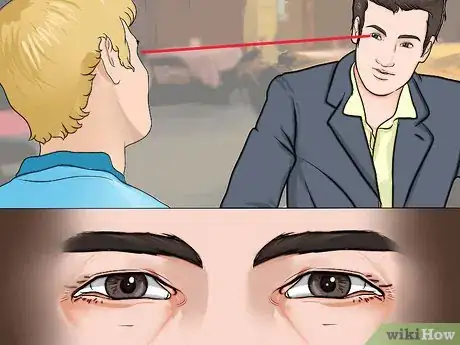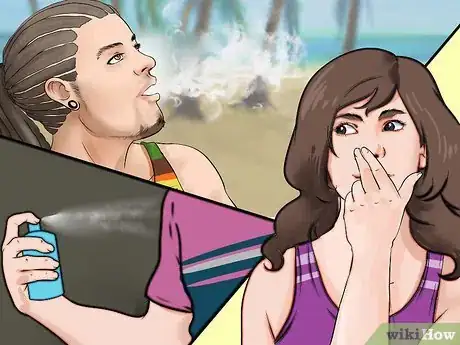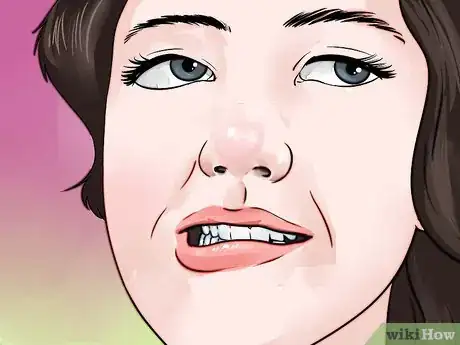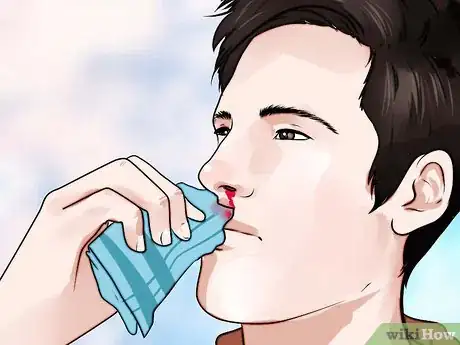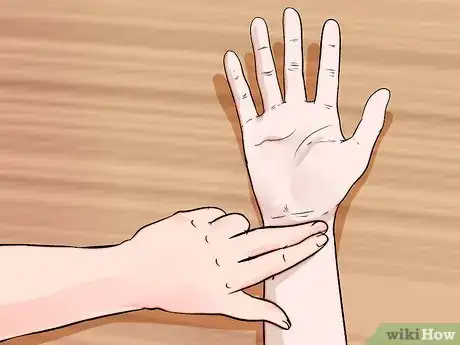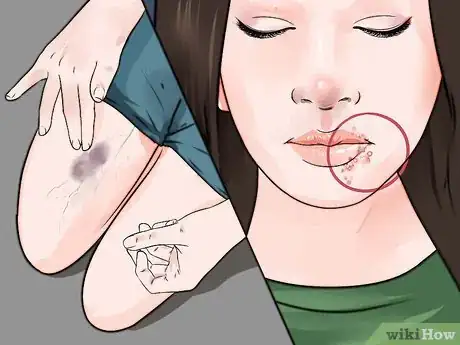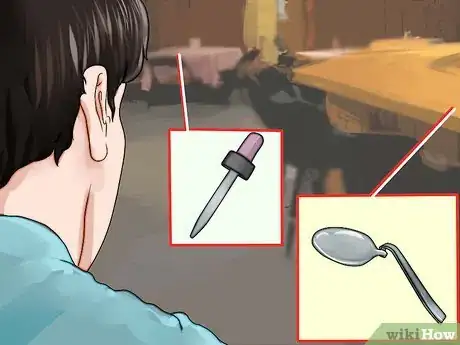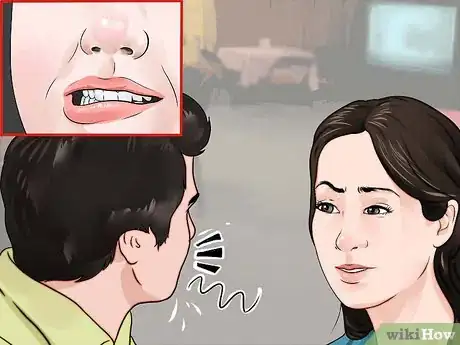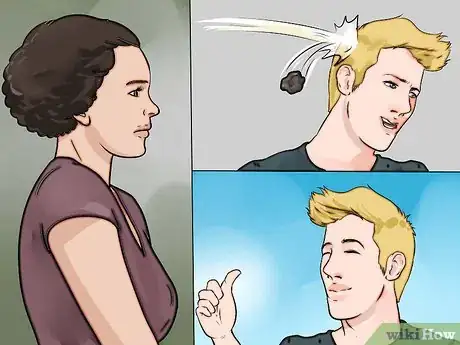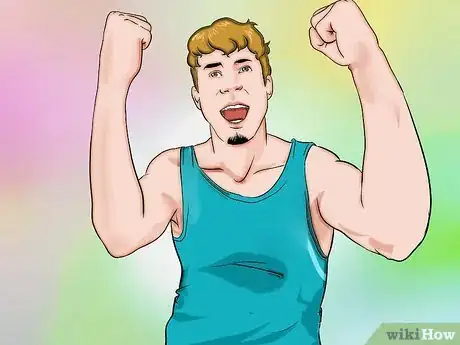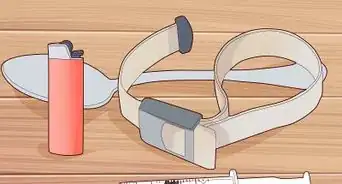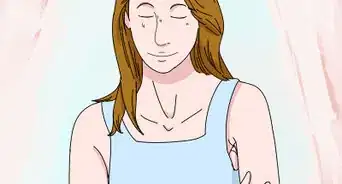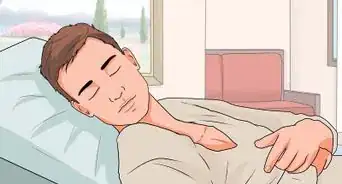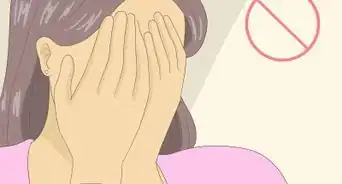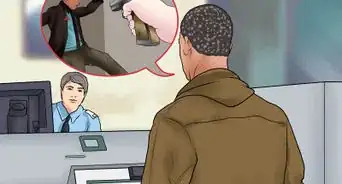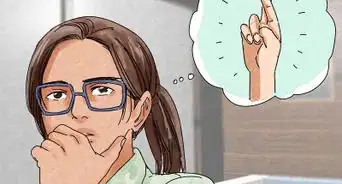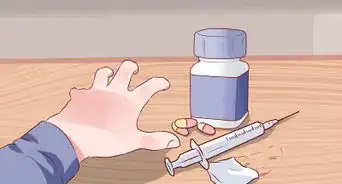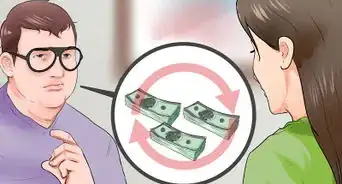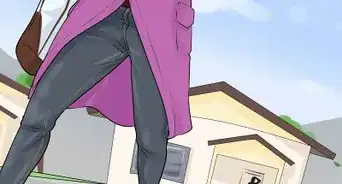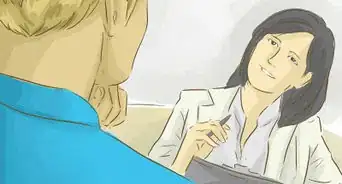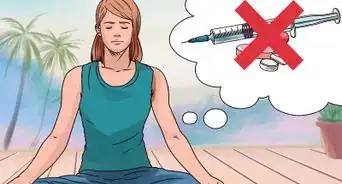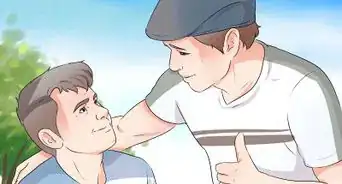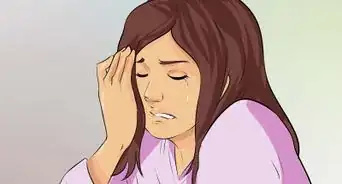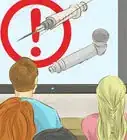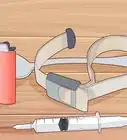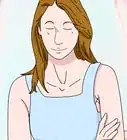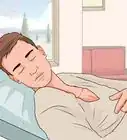This article was co-authored by Tiffany Douglass, MA. Tiffany Douglass is the Founder of Wellness Retreat Recovery Center, a JCAHO (Joint Commission on Accreditation of Healthcare Organizations) accredited drug and alcohol treatment program based in San Jose, California. She is also the Executive Director for Midland Tennessee at JourneyPure. She has over ten years of experience in substance abuse treatment and was appointed a Global Goodwill Ambassador in 2019 for her efforts in residential addiction treatment. Tiffany earned a BA in Psychology from Emory University in 2004 and an MA in Psychology with an emphasis on Organization Behavior and Program Evaluation from Claremont Graduate University in 2006.
There are 7 references cited in this article, which can be found at the bottom of the page.
wikiHow marks an article as reader-approved once it receives enough positive feedback. In this case, several readers have written to tell us that this article was helpful to them, earning it our reader-approved status.
This article has been viewed 1,183,484 times.
Someone who is "high" is intoxicated with drugs. If you suspect someone is high, you can ask him directly, or you can look out for physical and behavioral signs. In many cases, a person who is high will recover, or "come down," on his own without any danger. In other cases, however, a high person might need help. Observing someone's high can help you determine if he is likely to need medical attention or assistance getting home safely. It is especially crucial to notice if someone has been drugged by someone else.
Steps
Checking for Physical Signs
-
1Look into the person's eyes. Smoking a drug can cause red or watery eyes. Pupils that are constricted or dilated can be a sign of narcotics, stimulants, or club drugs. Check for rapid or unnecessary eye movements. Involuntary eye movements, or nystagmus, are symptomatic of many kinds of drug use.[1]
- If someone is wearing sunglasses inside or in the shade, they might be trying to hide red or otherwise affected eyes.
- Someone who is high on painkillers may have trouble keeping their eyes open.[2]
-
2Smell the person. Someone who has smoked marijuana might smell sweet, smoky, or skunky. A chemical or metallic smell might mean they inhaled a toxic household product, such as glue or paint thinner.
- A smell of incense, air freshener, or powerful perfume or cologne might be intended to cover up the smell of a drug that has been smoked.
Advertisement -
3Observe the person's mouth. Listen to his swallowing and observe the way it moves. Salivation and lip smacking can be signs of dry mouth, a sign of drug use. Licking of the lips, frequent clenching of the teeth or twisting of the jaw might mean that someone is high on club drugs.[3]
-
4Observe the person's nose. A bloody nose with no other apparent cause can mean that someone has snorted a drug, such as cocaine, meth, or a narcotic. A runny or congested nose can have many causes but combined with other symptoms it could signify that someone is high. Frequent rubbing of the nose can also be a sign.[4]
- Someone who has snorted a drug might have powder on her nostrils or upper lip.
-
5Observe the person's hands. Shaking hands can be a sign of club drugs, inhalants, or hallucinogens. Palm sweat can be a sign of intoxication. Burned fingertips can be a sign that crack cocaine was smoked.[5]
-
6Check the person's vital signs. Pulse, rate of respiration, temperature, and blood pressure can all be affected by drug use. If you feel safe touching the person in question, take his pulse and check his temperature. Cold, sweaty skin is one sign of drug use. An increase or decrease in blood pressure, an increased heart rate, or slowed breathing can all be signs of drug use.[6]
- Some drugs can cause chest pain, and even heart attacks. Seek medical help for someone who seems to be experiencing pain in his chest.[7]
-
7Check for signs of habitual drug use. People who use drugs such as methamphetamine, bath salts, or heroin often inject their drugs, which leaves track marks. Check for darkened veins, lesions, and bruising around the veins. Lesions that are open and in the process of healing can be signs of recent drug use.
- Sores or a rash on the mouth or nose can also be a sign of habitual drug use.[8]
-
8Check for drug paraphernalia. While pipes, rolling papers, syringes and rubber tubing might be easily recognised as drug paraphernalia, the unwarranted presence of household objects can also indicate recent drug use. Bent spoons, eye droppers, and cotton balls may be indicative of narcotic use. Razors, handheld mirrors, and tiny spoons might indicate the use of stimulants. Pacifiers, candy necklaces, and lollipops may be used by people on club drugs, such as Ecstasy, that cause the jaw to clench.[9]
Checking for Behavioral Signs
-
1Listen to the person's speech. Someone who is high may speak too much or too quickly, or may have problems speaking.[10] Someone who slurs words but does not smell like alcohol might be high.[11]
- If the person you are speaking with appears to have difficulty concentrating or following the conversation, or if her thinking is unusually paranoid, deluded, or panicked, she might be high.
-
2Observe the person's movements. A high person might react slowly, or might be nonreactive to surrounding people and things. If someone appears not to experience pain, he might be high. Physical coordination that seems to be rapidly deteriorating is a sign of drug use.[12]
- Someone moving as if he is drunk, but without the smell of alcohol, is possibly high.
- A drunk person who seems to be unusually impaired might also have taken drugs or have been drugged.
-
3Note unusual or shifting energy. Depending on the drug, a high person might be euphoric, relaxed, anxious and agitated, exhilarated, overconfident, or aggressive. Look for an unusual intensity of mood, or a quickly changing mood. If you know someone well, and she is behaving in an uncharacteristic way, that could be a sign of drug use.[13]
- Sleeplessness and restlessness can be signs that someone is high, as can drowsiness. If you cannot rouse a "sleepy" person, she might have passed out and need medical attention.
-
4Keep an eye out for unusual actions. If you know someone well, you can tell if he is exhibiting unusually high sociability, lack of inhibition, poor judgment, or an increased or decreased appetite or sex drive. Inappropriate laughter and intense snacking are common signs of marijuana use.[14]
- Someone high on a harder drug might hallucinate, seeing or sensing things that are not there. Delirious, psychotic, or violent behavior all might be caused by drug use.
- Some drugged people appear to have undergone a total personality change.
Expert Q&A
Did you know you can get expert answers for this article?
Unlock expert answers by supporting wikiHow
-
QuestionHow can you recognize if someone is high on painkillers?
 Tiffany Douglass, MATiffany Douglass is the Founder of Wellness Retreat Recovery Center, a JCAHO (Joint Commission on Accreditation of Healthcare Organizations) accredited drug and alcohol treatment program based in San Jose, California. She is also the Executive Director for Midland Tennessee at JourneyPure. She has over ten years of experience in substance abuse treatment and was appointed a Global Goodwill Ambassador in 2019 for her efforts in residential addiction treatment. Tiffany earned a BA in Psychology from Emory University in 2004 and an MA in Psychology with an emphasis on Organization Behavior and Program Evaluation from Claremont Graduate University in 2006.
Tiffany Douglass, MATiffany Douglass is the Founder of Wellness Retreat Recovery Center, a JCAHO (Joint Commission on Accreditation of Healthcare Organizations) accredited drug and alcohol treatment program based in San Jose, California. She is also the Executive Director for Midland Tennessee at JourneyPure. She has over ten years of experience in substance abuse treatment and was appointed a Global Goodwill Ambassador in 2019 for her efforts in residential addiction treatment. Tiffany earned a BA in Psychology from Emory University in 2004 and an MA in Psychology with an emphasis on Organization Behavior and Program Evaluation from Claremont Graduate University in 2006.
Founder, Wellness Retreat Recovery Center
-
QuestionHow do you help someone who has an addiction?
 Tiffany Douglass, MATiffany Douglass is the Founder of Wellness Retreat Recovery Center, a JCAHO (Joint Commission on Accreditation of Healthcare Organizations) accredited drug and alcohol treatment program based in San Jose, California. She is also the Executive Director for Midland Tennessee at JourneyPure. She has over ten years of experience in substance abuse treatment and was appointed a Global Goodwill Ambassador in 2019 for her efforts in residential addiction treatment. Tiffany earned a BA in Psychology from Emory University in 2004 and an MA in Psychology with an emphasis on Organization Behavior and Program Evaluation from Claremont Graduate University in 2006.
Tiffany Douglass, MATiffany Douglass is the Founder of Wellness Retreat Recovery Center, a JCAHO (Joint Commission on Accreditation of Healthcare Organizations) accredited drug and alcohol treatment program based in San Jose, California. She is also the Executive Director for Midland Tennessee at JourneyPure. She has over ten years of experience in substance abuse treatment and was appointed a Global Goodwill Ambassador in 2019 for her efforts in residential addiction treatment. Tiffany earned a BA in Psychology from Emory University in 2004 and an MA in Psychology with an emphasis on Organization Behavior and Program Evaluation from Claremont Graduate University in 2006.
Founder, Wellness Retreat Recovery Center
Warnings
- Confronting someone who is behaving erratically can be dangerous. Remove yourself from any situation with someone who is making you nervous.⧼thumbs_response⧽
- Seek emergency medical help if you have any other reason to suspect that someone has overdosed or is in need of physical or psychological help as a result of drug use.⧼thumbs_response⧽
- Intervene if you have reason to believe someone has been drugged. People who appear unusually drunk (such as extremely intoxicated after only one drink) and/or are being led somewhere by someone else might have been drugged with Rohypnol, or "roofie." Call an ambulance and/or the police or campus security.⧼thumbs_response⧽
- Seek emergency medical help if someone passes out, has trouble breathing, has a seizure or convulsions, or complains of chest pain or pressure.[16]⧼thumbs_response⧽
References
- ↑ http://www.mayoclinic.org/diseases-conditions/drug-addiction/basics/symptoms/con-20020970
- ↑ Tiffany Douglass, MA. Substance Abuse Treatment Specialist. Expert Interview. 10 March 2020.
- ↑ http://healthservices.camden.rutgers.edu/topics_drugs
- ↑ http://www.narconon.org/drug-abuse/signs-symptoms-cocaine-use.html
- ↑ http://www.phoenixhouse.org/prevention/signs-and-symptoms-of-substance-abuse/
- ↑ http://www.mayoclinic.org/diseases-conditions/drug-addiction/basics/symptoms/con-20020970
- ↑ http://www.hopkinsmedicine.org/healthlibrary/conditions/cardiovascular_diseases/vital_signs_body_temperature_pulse_rate_respiration_rate_blood_pressure_85,P00866/
- ↑ http://www.mayoclinic.org/diseases-conditions/drug-addiction/basics/symptoms/con-20020970
- ↑ http://healthservices.camden.rutgers.edu/topics_drugs
- ↑ http://www.phoenixhouse.org/prevention/signs-and-symptoms-of-substance-abuse/
- ↑ Tiffany Douglass, MA. Substance Abuse Treatment Specialist. Expert Interview. 10 March 2020.
- ↑ http://www.mayoclinic.org/diseases-conditions/drug-addiction/basics/symptoms/con-20020970
- ↑ http://www.narconon.org/drug-abuse/signs-symptoms-cocaine-use.html
- ↑ http://healthservices.camden.rutgers.edu/topics_drugs
- ↑ Tiffany Douglass, MA. Substance Abuse Treatment Specialist. Expert Interview. 10 March 2020.
- ↑ http://www.mayoclinic.org/diseases-conditions/drug-addiction/basics/symptoms/con-20020970
About This Article
To tell if someone is high, look into their eyes to see if they’re red or watery, or if they move involuntarily, which are all signs of drug use. You should also smell the person to see if you pick up smoke or a sweet scent, which could be a sign they've been smoking drugs. When the person swallows or talks, check if they smack their lips, salivate a lot, or clench their teeth, as these are potential symptoms of being high. Additionally, listen to how they talk, since someone who is high may speak too quickly or have difficulty talking. If you see the person moving around, note if they appear slow or non-responsive to people around them, which suggests that they’ve taken drugs. Make sure to pay attention to intense emotions, since someone who is high may be euphoric, aggressive, or relaxed. For tips on how to spot the signs of habitual drug use, keep reading!
